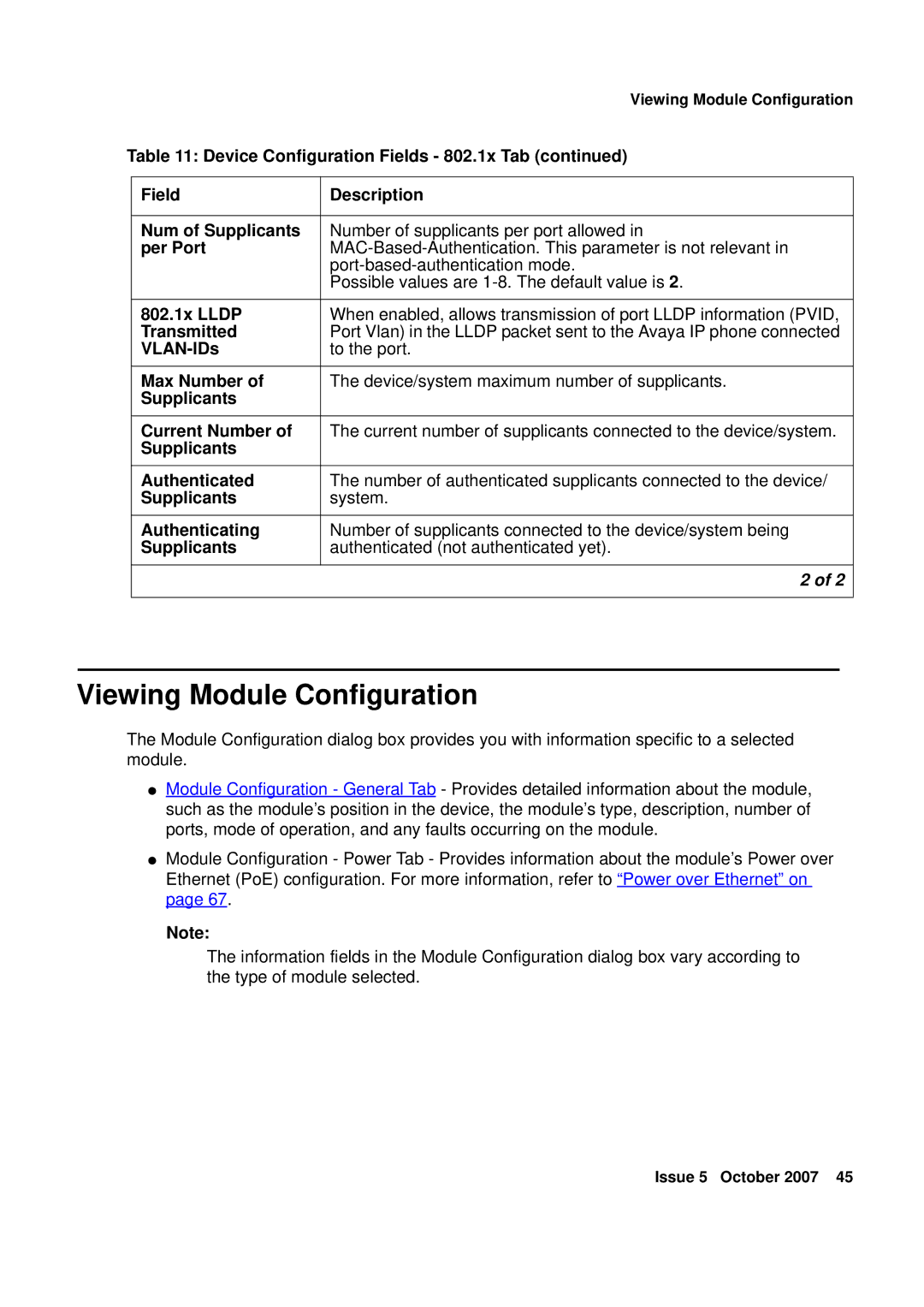|
| Viewing Module Configuration |
Table 11: Device Configuration Fields - 802.1x Tab (continued) | ||
|
|
|
| Field | Description |
|
|
|
| Num of Supplicants | Number of supplicants per port allowed in |
| per Port | |
|
| |
|
| Possible values are |
|
|
|
| 802.1x LLDP | When enabled, allows transmission of port LLDP information (PVID, |
| Transmitted | Port Vlan) in the LLDP packet sent to the Avaya IP phone connected |
| to the port. | |
|
|
|
| Max Number of | The device/system maximum number of supplicants. |
| Supplicants |
|
|
|
|
| Current Number of | The current number of supplicants connected to the device/system. |
| Supplicants |
|
| Authenticated | The number of authenticated supplicants connected to the device/ |
| Supplicants | system. |
|
|
|
| Authenticating | Number of supplicants connected to the device/system being |
| Supplicants | authenticated (not authenticated yet). |
|
|
|
|
| 2 of 2 |
|
|
|
Viewing Module Configuration
The Module Configuration dialog box provides you with information specific to a selected module.
●Module Configuration - General Tab - Provides detailed information about the module, such as the module’s position in the device, the module’s type, description, number of ports, mode of operation, and any faults occurring on the module.
●Module Configuration - Power Tab - Provides information about the module’s Power over Ethernet (PoE) configuration. For more information, refer to “Power over Ethernet” on page 67.
Note:
The information fields in the Module Configuration dialog box vary according to the type of module selected.
Issue 5 October 2007 45
